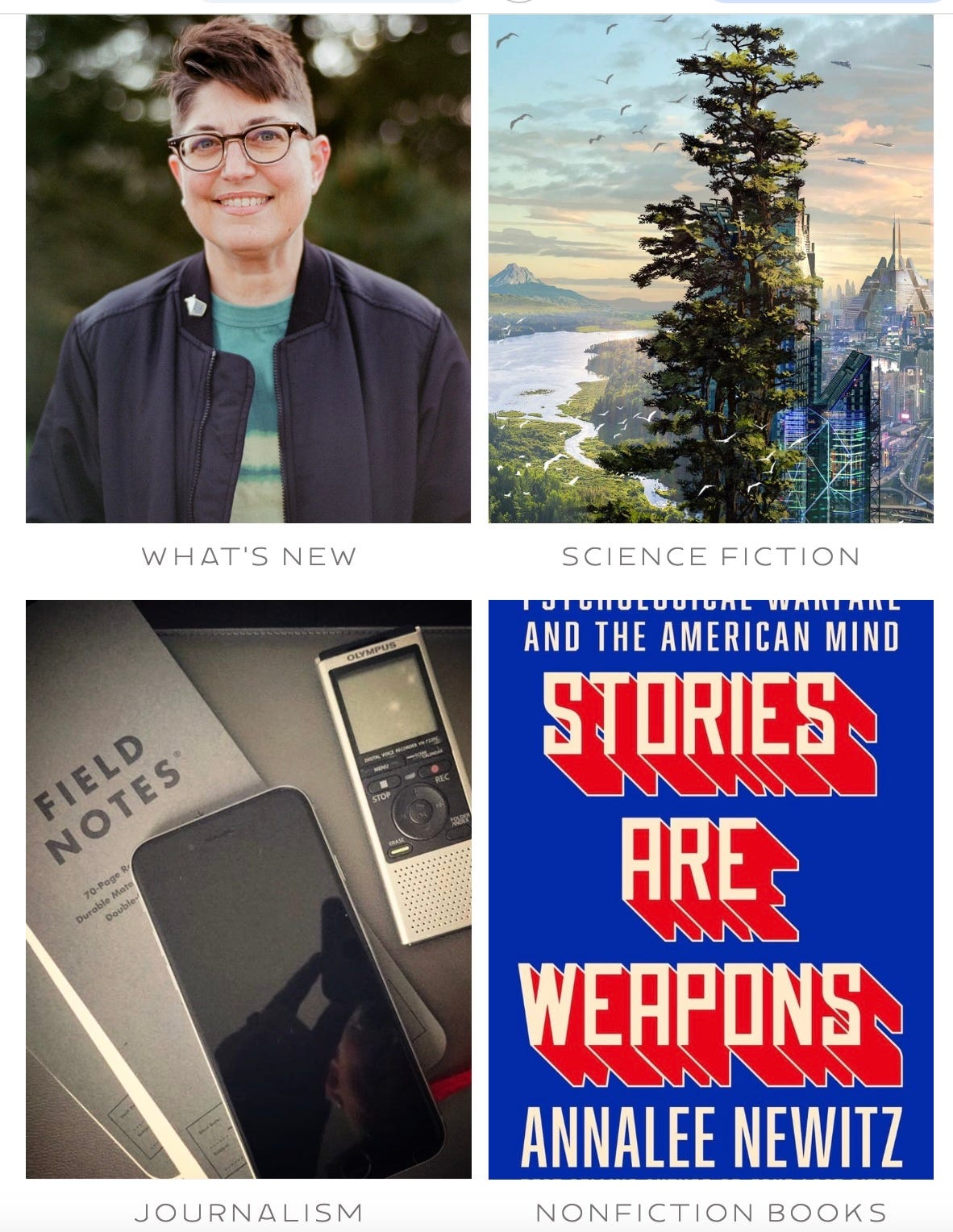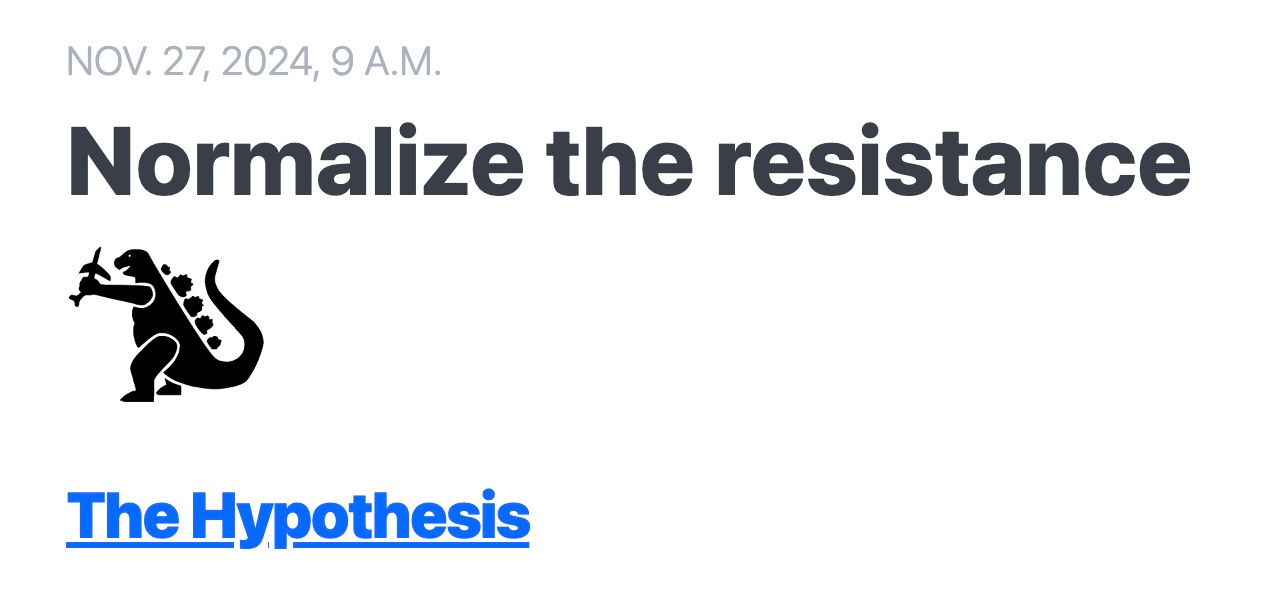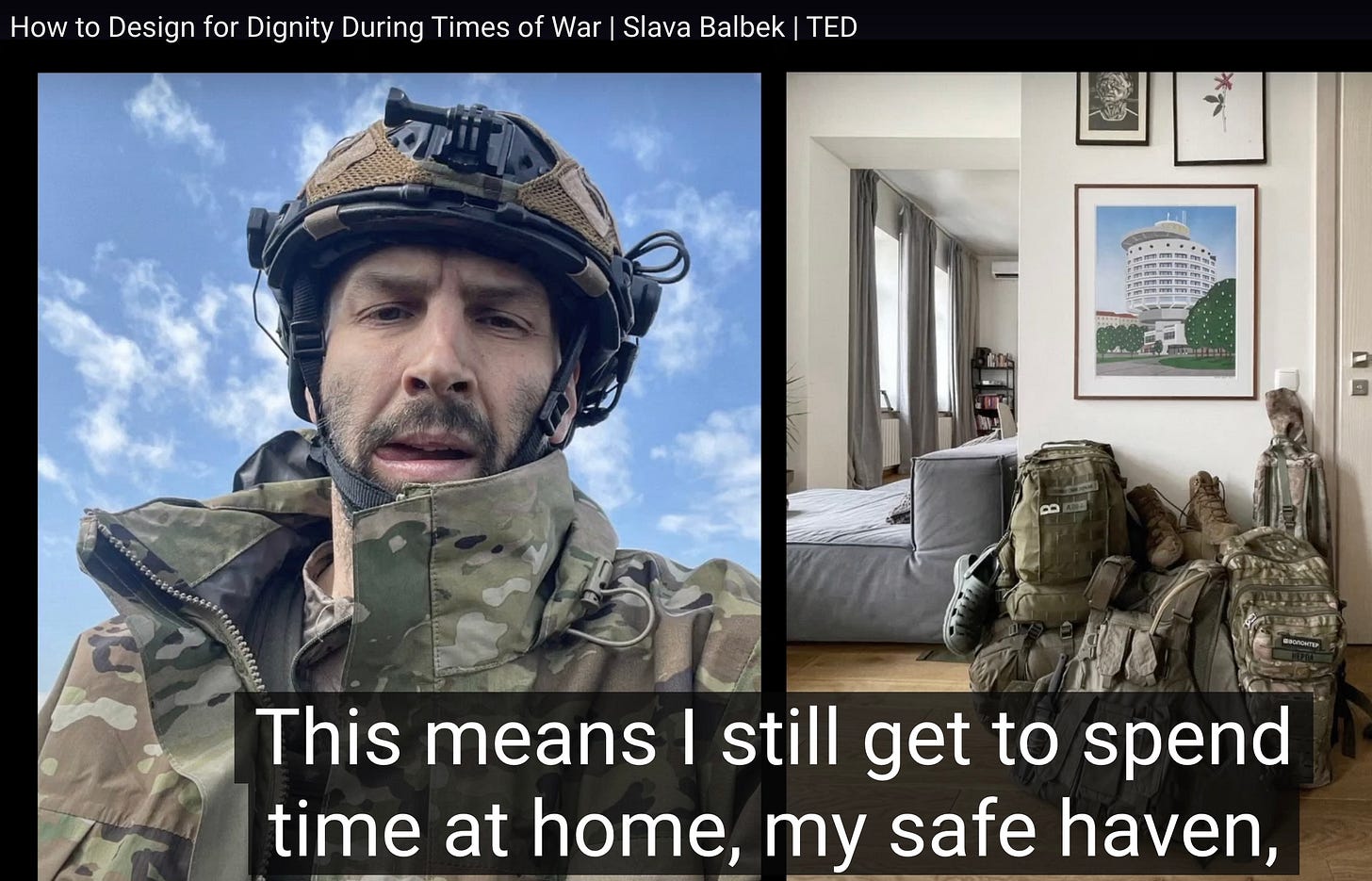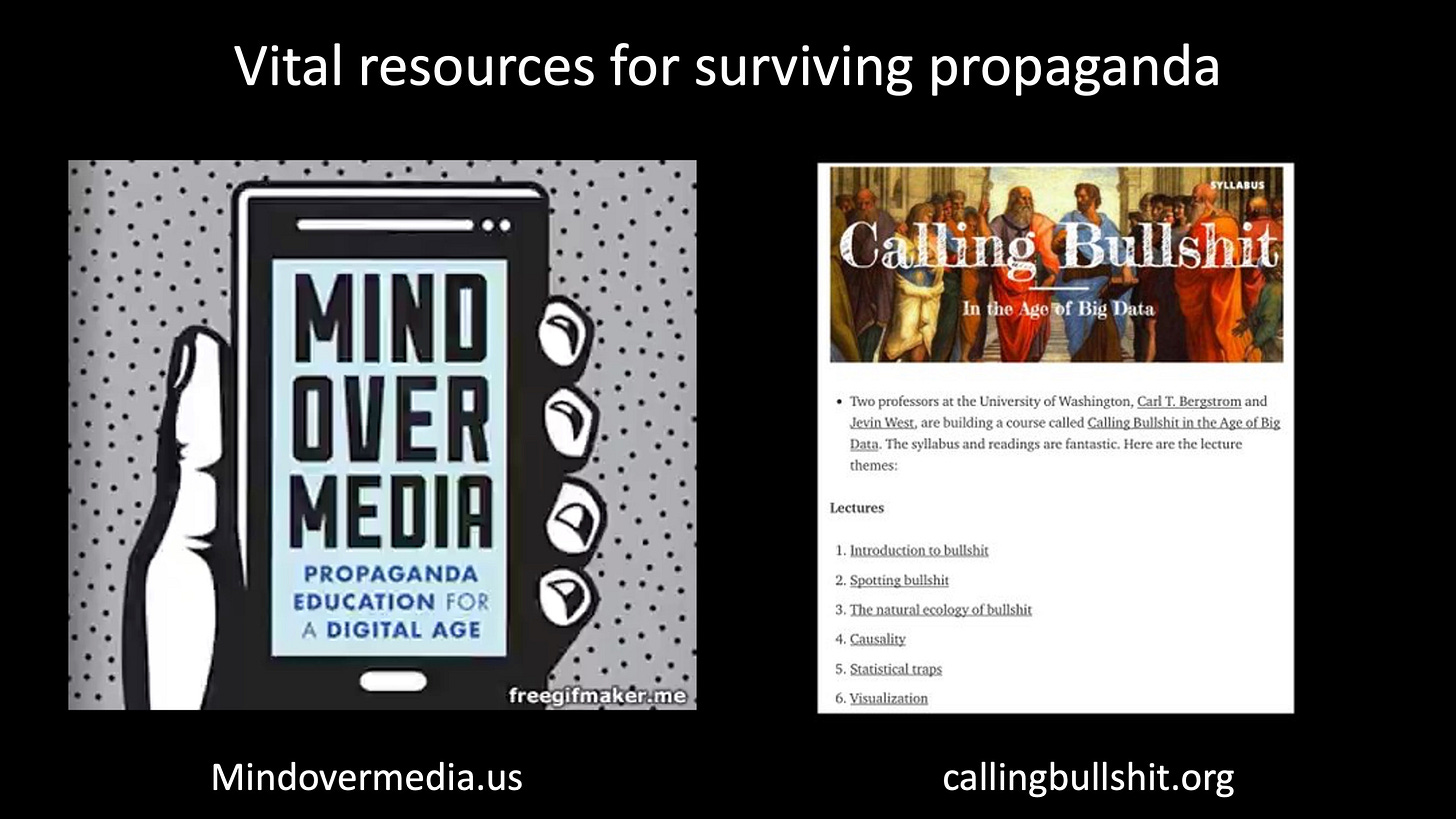A Time for Gratitude - and Grit, Given What's Ahead
Valuable advice for this breath-taking Thanksgiving moment ahead of breathtaking moments to come in 2025 and beyond
Thanksgiving is something of a communal “take a breath” moment in America - unless there’s too much debate at your family feast, or unless you’re a turkey. Here are some of our neighbors.
So do take that breath. It’s a vital practice given what’s coming. I’ve always reached for my friend Richard Butler’s song Breathe at such times.
But also make sure to read the latest dispatch from the masterful future-focused and risk-focused thinker and writer Annalee Newitz from her newsletter The Hypothesis. Subscribe here. Annalee writes science fiction and nonfiction with equal verve and skill, with novels including The Terraformers and Autonomous and a timely recent nonfiction title, Stories Are Weapons: Psychological Warfare and the American Mind. I asked her permission to post this excerpt.
As Annalee explains in that book and below, the confusion-sowing behavior of President-elect Donald J. Trump and the strategies of his minions are nothing new, and that’s not good.
Annalee Newitz - “normalize the resistance”
There is a void at the core of our imaginations right now, and it is America’s future. It’s hard to know what will happen after Trump’s inauguration. Especially because the new regime’s goal is to keep us confused and unsure about what is really happening.
Weaponized confusion is a classic form of psychological warfare, deployed by militaries against foreign adversaries for centuries. It lowers morale, induces a sense of hopelessness, and makes decision-making nearly impossible. Increasingly, in the 21st century, governments are using it against their own people. In Russia, the tactic is called maskirovka (literally: camouflage); in America, Steve Bannon calls it “flooding the zone with shit.” You know the drill. Political leaders unleash a barrage of contradictory, often false messages, and we the people have no idea WTF is going on.
It’s hard to protest policies that you can’t even pin down.
This is something I thought about a lot over the past few years while I wrote Stories Are Weapons, a deep dive into the history of psychological warfare in America. What I learned is that there are many ways to resist modern propaganda: you can protect schools and libraries from censorship; keep careful records of the histories that authorities are trying to erase; and tell your own truthful stories about what is happening. (I talked in more depth about these strategies during a virtual lecture at Cary Library in Massachusetts.)
But it is impossible to completely eradicate government disinformation campaigns.
Instead, we need to normalize the struggle against them.
Last year when I spoke at TED, I met Slava Balbek, a Ukrainian architect who now works part-time as a drone operator fighting the Russian invasion of his country.
He told me that Ukrainians joke about “work/life/war balance,” trying to carve out a place in their lives for family and jobs while also fighting a war. His grim point was that ordinary life does go on, even if your city is bombed by foreign enemies, or your government starts rounding people up.
Part of normalizing the fight against disinformation means preparing yourself — in big and small ways — for the rise of an authoritarian government….
Please read the rest here and weigh in with your reactions.
For more from Annalee on how to survive disruptive and dangerous times, here’s a flashback to Dot Earth days, when the threat was various possible drivers of mass extinction:
I also asked:
Will human civilization on Earth be imperiled, or enhanced, by our own world-changing technologies? Will our technological abilities threaten our survival as a species, or even threaten the Earth as a whole, or will we come to live comfortably with these new powers?
Annalee replied:
If there is any kind of tool-making skill that humans excel at most, it’s creating dual-use technologies. Often, our greatest technological achievements — say, trains in the nineteenth century or computers in the twentieth — can be used to improve our environments and to degrade them. As we look to the future of our civilization, we have to bear in mind that our tools will never lead to an either/or proposition in terms of progress. There will always be ambiguities. The burgeoning field of geoengineering, which could one day help us draw down excess carbon from the atmosphere and improve the environment, could also be appropriated by the military to wage war with weather. Synthetic biology could be used to enhance the health and abilities of our species, or to launch a racial purity movement.
And this isn’t a new story. Humans have made dual-use technologies since our ancestors began chipping out flake tools — which are great for making food and clothes, but also great for murdering. There is a kind of grim hope to recalling this story from our early evolution. Despite our worst instincts, we have made it this far, often fumbling, but always solving our problems with tools. We are not perfect, and sometimes we make horrible mistakes like relying on fossil fuels for energy, or building atom bombs.
Now, we are on the brink of understanding how to use the Earth itself as a machine to solve the problems our industrial technologies have created. As I said, our history offers a grim hope. With each new error, we build tools to remediate what we’ve done (though admittedly we then make more mistakes). It’s important to remember that there is no one thing we can do, nor any one technology we can deploy, that will guarantee all humans will use their powers wisely. Still, we can invest our efforts in new development as wisely as possible, choosing solar over coal and biodiversity over factory farms. In coming centuries, I believe we’ll strive to make the anthropocene comfortable for as many species as possible, if only for the selfish reason that it will make us comfortable too. My hope is that in the very act of inventing tools to improve the environment, we will come closer to understanding our place on the planet, as well as in a global society of creatures like ourselves.
Don’t leave without exploring these great free online tools for such moments, Mindovermedia.us, developed by past Sustain What webcast guests, Renee Hobbs of the University of Rhode Island, and callingbullshit.org, by Jevin West and Carl Bergstrom of the University of Washington.
Takeaway tidbit: my book chat with Newitz and Betsy Kolbert of The New Yorker:
Lessons from Lost Cities, Visions of Altered Skies
Since the early days of the pandemic, I’ve hosted hundreds of episodes of Sustain What, my webcast from Columbia’s Climate School exploring constructive paths to take when complexity and consequence collide. Few segments have been as bracing and, yes,










Andy, Happy Thanksgiving to you, my friend, with gratitude for the gifts of your words AND your music. Both have become a touchstone for me in recent years. Thanks for this post introducing Richard Butler's beautiful song/video, which I've bookmarked because I know I'll need it. Thanks, too, for introducing Annalee's writing. Thanks for the wild turkey parade, which made me smile. Thanks for being such an articulate and tireless advocate for our planet and all of its beings. Thanks for being such a persistent champion of social justice, and for singing the songs that keep the movement in motion. Thank you for writing new ones! Hope we get to see each other at one of your future Maine gigs. Namaste, Kathy & George
I love reading American thanksgiving posts like this, we canadians do not take our version nearly so seriously. Have a happy holiday.